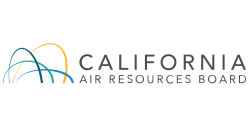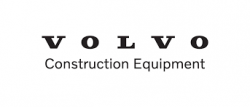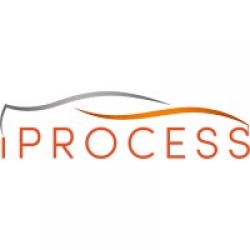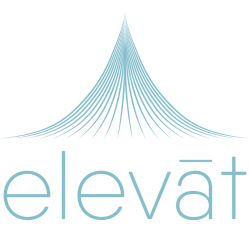Day 1: Wednesday, August 21
Room A Opening session
Moderator
 Dr Wilfried Aulbur
Dr Wilfried AulburSenior partner
Roland Berger
USA
9am
The potential liability of UGVs: assessing your product development calculus
 Katherine Sheriff
Katherine SheriffAttorney, lead, mobility and transportation industry group
Davis Wright Tremaine
USA
The use of UGVs in the private sector presents significant challenges across jurisdictions due to the complexity of the physical environments in which UGVs operate and the heightened potential for liability due to the uncertainty of UGV operations. The EU AI Act as adopted, coupled with recent revisions to the EU Product Liability Directive, presents legal risks for UGV manufacturers, software developers and cloud companies whose products or services reach the EU market. What factors should companies keep in mind for testing and product development? This discussion outlines key issues to consider in assessing your product calculus.
What the audience will learn
- Dynamic factors to consider when determining a safety case for UGV testing and deployment
- The potential impact of liability frameworks developing at international levels
- Complexities presented by AI for traditional liability frameworks, including concepts of causation, agency and foreseeable harm
9.20am
Integrating the usage of clean energy sources into the off-road sector
 Kim A Heroy-Rogalski
Kim A Heroy-RogalskiChief of mobile source regulatory development branch
California Air Resources Board (CARB)
USA
Per Governor Newsom’s Executive Order N-79-20, Assembly Bill 32 and Senate Bill 32, California is heading rapidly toward a zero-emissions landscape and cleaner air. The presentation will provide an overview of the California Air Resources Board’s existing and planned off-road zero-emissions programs. These include the Clean Off-Road Equipment Voucher Incentive Project (CORE), advanced technology off-road demonstrations, transportation refrigeration unit regulation, zero-emission provisions of the in-use off-road diesel regulation, small off-road engine regulations, the Low-Carbon Fuel Standard, the zero-emissions forklift regulation and the upcoming Targeted Manufacturer Rule. Also discussed will be some interesting examples of deployments of zero-emission off-road equipment.
What the audience will learn
- Off-road zero-emission equipment provides a way to cut both criteria and greenhouse gas emissions, often while providing savings on fuel
- California has ambitious greenhouse gas reduction targets and an executive order, which are rapidly pushing the state to zero emissions
- California is pursuing numerous carrots and sticks to encourage the transformation to zero-emission technology, including funding demonstrations, providing incentive funding and facilitating infrastructure expansion
9.40am
Recent trends in the off-highway industry
 Dr Wilfried Aulbur
Dr Wilfried AulburSenior partner
Roland Berger
USA
Global trends and increasing geo-political uncertainty impact the overall off-highway industry. Volatility impacts markets and makes market volumes difficult to predict which drives the need for increased organizational flexibility and agility as well as reduced break even points.
In addition, technological transition such as autonomy, digitalization and electrification change business models for fleet operators and challenge OEMs to invest in sometimes unproven technologies with unclear timelines. A good understanding of customer operations and identification of related value creation opportunities is key for increased profits and organizational resilience.
What the audience will learn
- Overview of market trends in key geographies
- Challenges and opportunities of technological transitions, e.g., electrification
- Impact of geo-politics on the business, e.g., supply chain resilience
- Need for cost efficient operations
10am
Convergence of new technologies in connectivity, electromobility and automation
 Dr Ray Gallant
Dr Ray GallantVice president of sustainability and productivity services
Volvo Construction Equipment
USA
Volvo Construction Equipment (Volvo CE) has been involved with several pilot/demonstration sites using battery-electric construction machines, with the primary objective of understanding how these machines fit existing duty cycles and practices. In addition, Volvo CE has placed these units in applications where operation with a traditional diesel machine is impractical or impossible.
Dr. Gallant will discuss the learnings and challenges through these pilot trials, and compare them to traditional internal combustion equivalents. The state of the technology relative to these applications will be discussed, as well as necessary improvements, alternate technologies, and changes to the site/application workflow that may make these technologies more viable.
What the audience will learn
- Review upcoming technologies in Off-road equipment sustainable power and where they will likely appear
- Compare and contrast the results from select 2023/24 technology pilots with traditional ICE equivalent models
- Discuss the concept of the “worksite as a factory” to illustrate the challenges in scaling these technologies and the support infrastructure
- Proposed steps for site-level pilots and trials
Day 2: Thursday, August 22
Room A Opening session
Moderator
 Florian Rohde
Florian RohdeManaging partner
iProcess
USA
9am
How Tesla changed the world, and what to learn from them
 Florian Rohde
Florian RohdeManaging partner
iProcess
USA
Tesla created the software-defined vehicle, without calling it that. While electrification is a significant attribute of Tesla's cars, what makes a real difference is the software-first approach. Topics like continuous integration, over-the-air software updates and agile engineering are the real reason why Tesla took over significant market share in the world of cars. This presentation details what approaches Tesla took to challenge the status quo, and what can be learned from it and transferred into the iVT world.
What the audience will learn
- Continuous integration and validation
- Agile engineering
- Over-the-air software updates and telematics
9.20am
How to maximize battery lifespan with thermal management systems
 Tiffany Fiedler
Tiffany FiedlerApplication engineering section area manager
Modine
USA
Thermal management for electrified off-highway vehicles is more complex than for their ICE predecessors. The lithium-ion battery packs in the EV have to maintain a narrow temperature window, unlike ICE vehicles, and a battery thermal management system (BTMS) is needed to ensure the battery maintains the optimal temperature range. There are several key considerations that go into selecting and integrating a BTMS for electric off-highway machinery, and integrating the right BTMS will have an impact on the electric vehicle's battery performance, range and longevity. Attend this session to better understand how to maximize battery lifespan with a BTMS.
What the audience will learn
- Chemical reactions and battery basics
- What to consider when selecting a battery thermal management system (BTMS)
- How to determine charge conditions
- How to optimize duty cycles
- How a battery thermal management system (BTMS) works
9.40am
Beyond sustainability: unlocking the many advantages of electric construction equipment
 Joel Honeyman
Joel HoneymanVP of global innovation
Doosan Bobcat
USA
The technology within the construction industry is rapidly evolving, enabling contractors and equipment operators to accomplish more thanks to cutting-edge advances. This presentation will explore the design shift toward electric machinery, highlighting how new innovations will redefine the construction equipment landscape. It will discuss benefits beyond sustainability, as electric machines often not only rival their diesel counterparts in performance but surpass them. You will hear how an electrified platform can bring a host of new features and increased performance. The presentation will dispel common misconceptions and spark a newfound curiosity about the many additional benefits these groundbreaking advancements bring to equipment owners and operators. By embracing these transformative developments, operators can achieve increased power, performance, comfort and sustainability. Join us to discover how the future of construction technology is being reshaped to provide new solutions for the construction industry.
10am
IoT: connected machine, connected business, connected ecosystem
 Adam Livesay
Adam LivesayFounder
Elevat
USA
In today’s interconnected world, the Internet of Things (IoT) stands at the forefront of innovation, driving profound changes across industries. This presentation will explore the transformative impact of IoT technology, highlighting how it integrates machines, businesses and entire ecosystems to drive the next generation of business. We will uncover the key components and technologies that enable this integration, and discuss the immense benefits and opportunities that arise from this connectivity.
What the audience will learn
- The focus will be on the latest techniques in hydraulic data acquisition, including the use of IoT-enabled devices
- How data, once collected, can be analyzed and applied to identify inefficiencies, predict system failures and reduce downtime
- Case studies demonstrating the successful application of these strategies in various sectors, showcasing tangible improvements in performance metrics
10.20am - 11am
Panel Discussion: NFPA Presents: planning a business case for digital fluid power – developing features and options tied to ROI
In this session, technology leaders will provide templates for digital transformation outcomes and developing business plans. We’ll have an open discussion about rationalizing and resourcing digital fluid power developments – including elements of value, adoption curves, and technology development plans.
What the audience will learn
- How can leaders plan for return on value of new technology?
- What are some ways to think about adoption and “forecasting” for internal accountability?
- How do we think about hard benefits, versus soft factors?
- Is digital a leadership effort or is it more keeping up with competition?
- Can we think about digital connectivity to other technologies? Is fluid power stand alone?
 Adam Livesay
Adam LivesayFounder
Elevat
USA
 Paul Ludwig
Paul LudwigPresident and CEO
HED Intelligent Controls
USA
Notice: Undefined index: NA1 in /var/www/vhosts/secure.ukimediaevents.com/httpdocs/products/confman3/mysqli/snapshot-view-bs4.php on line 793
Keith Simons
CEO
OEM Controls & NFPA 2024 Chairman
Dan Bagley, founder and principal, StrategicInk for NFPA, USA